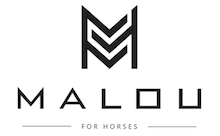Why B2B distribution?
At some point, all manufacturing companies are faced with the same question: Do we sell our products ourselves or do we use a B2B distributor? Ultimately, the decision is always dependent on the individual requirements of the manufacturer. For the manufacturer of premium products with a small number of customers, establishing own sales is usually advantageous. For mass-marketable products and a high number of customers, external distributors can achieve efficiency advantages.
Prior to selecting a B2B distributor
The decision for or against a distributor is always based on performance, customer, company and competition criteria. In particular, the need for explanation and the price segment of the product play a major role. If the need for explanation is great, the involvement of a distributor usually does not make sense. The cost of training and the risk of communication problems are too high. At the same time, if products are located in a premium or luxury segment, customers more often expect a certain personal service and no anonymous advice through an intermediary. Next, the size of the company plays an important role in the decision making process according to a 2014 McKinsey study.
Both local manufacturers with own sales and larger exporters with distributors achieve on average 6 percent profitability. This is justified, among other things, in the custom-made sales models. Local manufacturers have direct access to their customers and can maintain contact and communication using their own sales department. Exporters would need offices in many countries and would need to build local knowledge. Since the costs for this would be significantly higher than the proceeds, it is based on distributors.
Furthermore, you should consider the following prior to selecting a B2B distributor:
– USP (unique selling point)
Selling directly to customers can be a unique selling point, which should not be underestimated. It can establish authenticity, personality and trust and strengthen the customer relationship.
– Financial situation
The financial strength of the company must be taken into account. For smaller companies, it is too expensive to build their own sales network for an entire country let alone Europe.
– Number of customers
The larger the number of customers, the more complex is the establishment of a separate sales organization. Complexity continues to increase as customers shop at short intervals. The use of distributors is cheaper in this case.
– Distribution channels already in use
The decision for or against distributors must always be made against the background of existing sales. The cost of restructuring can be very high. It may be worthwhile exploring a distribution model for the first time when expanding into new markets or smaller export markets. The empirical values ??are then evaluated and used to adjust the existing model.
Pros and cons of self-marketing
+ Full control
+ Lower transaction costs
+ Strengthens branding and improves customer loyalty
– Fixed costs are high
– Selling products in an export market requires a local office with ideally local employees
– Mass distribution is hardly possible
Pros and cons of using a distributor
+ Sales potential
+ No fixed costs
+ Distributors are specialized in selling products
+ Inherent incentive to create the highest possible sales
– Low control of distributors
Working with a B2B distributor
It is imperative for companies to see the distributor as part of their own company, even though it is de facto an external employee or business partner. But the distributor will only work efficiently if given the necessary tools and incentives. First and foremost, a reasonable margin for sales. If the distributor earns little or no money, his or her work does not pay for him. Consequently, he or she will look for other customers.
Of course, there is no universal remedy for working with a distributor. However, some important mechanisms have proven themselves and form the basis for success:
– Continious training and regular meetings strengthen the relationship between distributor and the manufacturer.
– Distribution only works if the producer offers assistance. The distributor must be provided with supporting information to be able to process newsletters, advertisements or the dispatch of mailings more efficiently.
– Although the distributor has some freedom, clear rules for corporate design must be communicated. This is even more important the bigger the distributor is.
– Good distributors are in demand. Accordingly, companies must ensure that distributors remain motivated. Annual conferences, competitions, newsletters and regular site visits form the basis for this.
Distribution and digitalisation
Traditional distributors have long had a reputation for good customer service. But to prevail in today’s digital market, you need more than that. Desktop and mobile devices have drastically changed the mindset of consumers. People no longer wait for a sales call or spend time flipping through a paper catalogue. Instead, they tend to conduct their own research, and purchase online at their own convenience. In order to become more attractive to existing and potential customers, products and their promotion require a localisation aspect to them, to be found on all channels potential customers are looking for them.
For us at Equestrian International this means: The utilisation of multi-channel on- and offline strategies including in-store retailers, fairs and events, carefully placed ads, useful content and influencers as well as a clean, well-designed online presentation including social media coverage creates transparency, usability, attractiveness and coverage. 4Hooves is an example of such a website, combining a shopping platform with infotainment across the equestrian industry – for B2B as well as B2C customers.
Conclusion
Distribution for mass products, self-sales with high need for explanation
Self-marketing is particularly suitable for consulting-intensive products and a small number of customers. This also strengthens customer loyalty and counteracts the anonymization in sales. However, the principle always applies: The decision for or against distributors must be made on the basis of the selection criteria presented and the individual evaluation of the advantages and disadvantages.
Distributors on the other hand, are a sensible sales channel for mass-produced products. Products can be presented in a cost-effective manner to a large number of customers in the B2B sector. However, distribution is not a one-way street: the manufacturer has to ensure attractive margins, regular training and the provision of advertising material. If expanding into a foreign market, keep in mind to utilise your distributors potential and its network.

 Whilst the UK presents low uncertainty avoidance, Germany belongs to the uncertainty avoidant countries. Germans prefer a deductive rather than an inductive approach in their thinking, planning or presenting, which means that a systematic overview has to be given in order to proceed.
Whilst the UK presents low uncertainty avoidance, Germany belongs to the uncertainty avoidant countries. Germans prefer a deductive rather than an inductive approach in their thinking, planning or presenting, which means that a systematic overview has to be given in order to proceed. 

 Let me tell you a little bit about the story behind the brand name as for us it’s very special. The name „Malou“ is in honour of our handicapped young mare. She is a very special horse and deserves to be treated no different than any other horse. Even though we had to find out the hard way that she would never been able to be ridden or even worked, we decided to keep. And as long as we adapt to her pace, she seems to be a happy puppy. She loves being brushed as long as it doesn’t take longer than 20 minutes tops. Apparently, this mare has a very busy schedule. She enjoys bossing her partner in crime around and is a real foodist. I mean who doesn’t like eating, but she really loves her food. And yet, she is very picky. When we first tried our organic sugar-free and natural treats, she wasn’t too happy. No sugar seemed to be a little out of her comfort zone. But we remained strong and didn’t bring her any other treats and eventually she started trying them. After two weeks she decided that
Let me tell you a little bit about the story behind the brand name as for us it’s very special. The name „Malou“ is in honour of our handicapped young mare. She is a very special horse and deserves to be treated no different than any other horse. Even though we had to find out the hard way that she would never been able to be ridden or even worked, we decided to keep. And as long as we adapt to her pace, she seems to be a happy puppy. She loves being brushed as long as it doesn’t take longer than 20 minutes tops. Apparently, this mare has a very busy schedule. She enjoys bossing her partner in crime around and is a real foodist. I mean who doesn’t like eating, but she really loves her food. And yet, she is very picky. When we first tried our organic sugar-free and natural treats, she wasn’t too happy. No sugar seemed to be a little out of her comfort zone. But we remained strong and didn’t bring her any other treats and eventually she started trying them. After two weeks she decided that  Anyway, the product range so far consists of 5 organic feeding oils, 6 organic horse treats and 1 organic coconut oil to be used for mane, tail and hoof care as well as a natural repellent for bugs and flies. We plan on expanding the product range in near future as we see a great demand for organic horse feed and care products across the markets. Our aim is to provide healthy and organic options in feeding horses to align to their natural feeding habits and expand the range accordingly. All our products are independently analysed and conform to the standard of organic farming as set by the European Commission. We strive to offer products along all feed types, in the future. From organic hay to organic minerals, salt licks etc. And we can assure you – facing the organic certification process is one thing, having one hard judge to face before anything else is an entirely different matter. 😉
Anyway, the product range so far consists of 5 organic feeding oils, 6 organic horse treats and 1 organic coconut oil to be used for mane, tail and hoof care as well as a natural repellent for bugs and flies. We plan on expanding the product range in near future as we see a great demand for organic horse feed and care products across the markets. Our aim is to provide healthy and organic options in feeding horses to align to their natural feeding habits and expand the range accordingly. All our products are independently analysed and conform to the standard of organic farming as set by the European Commission. We strive to offer products along all feed types, in the future. From organic hay to organic minerals, salt licks etc. And we can assure you – facing the organic certification process is one thing, having one hard judge to face before anything else is an entirely different matter. 😉